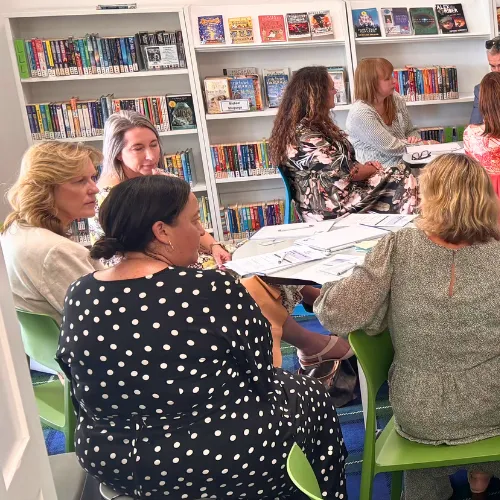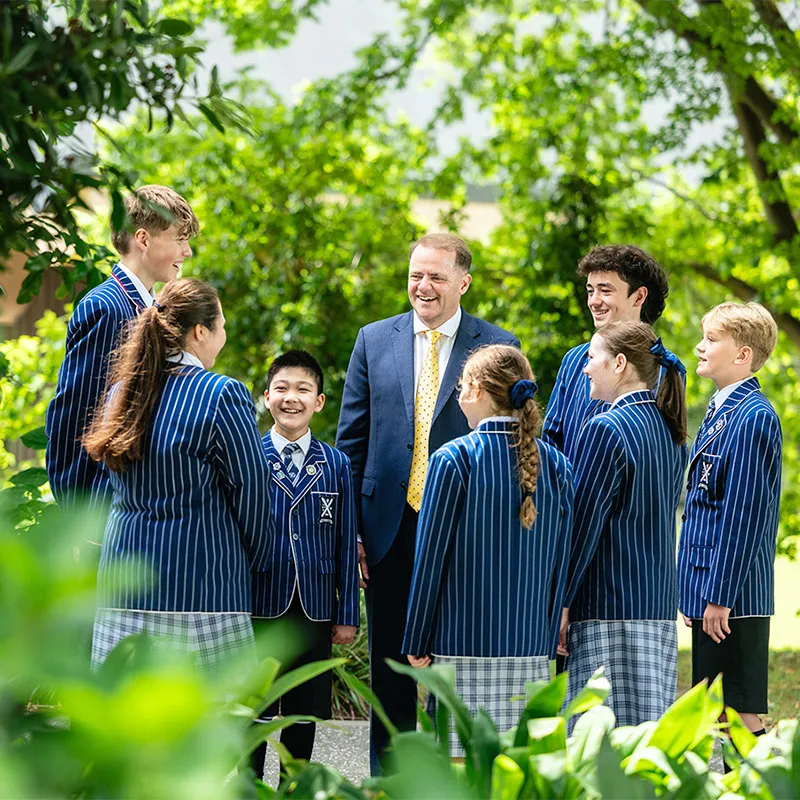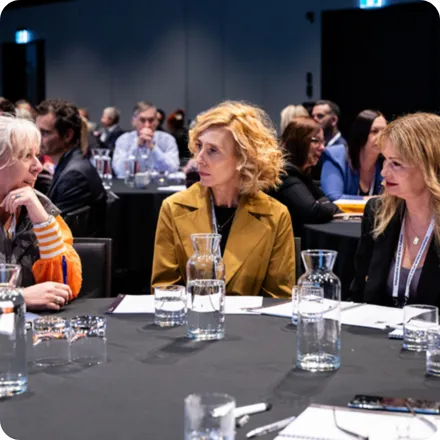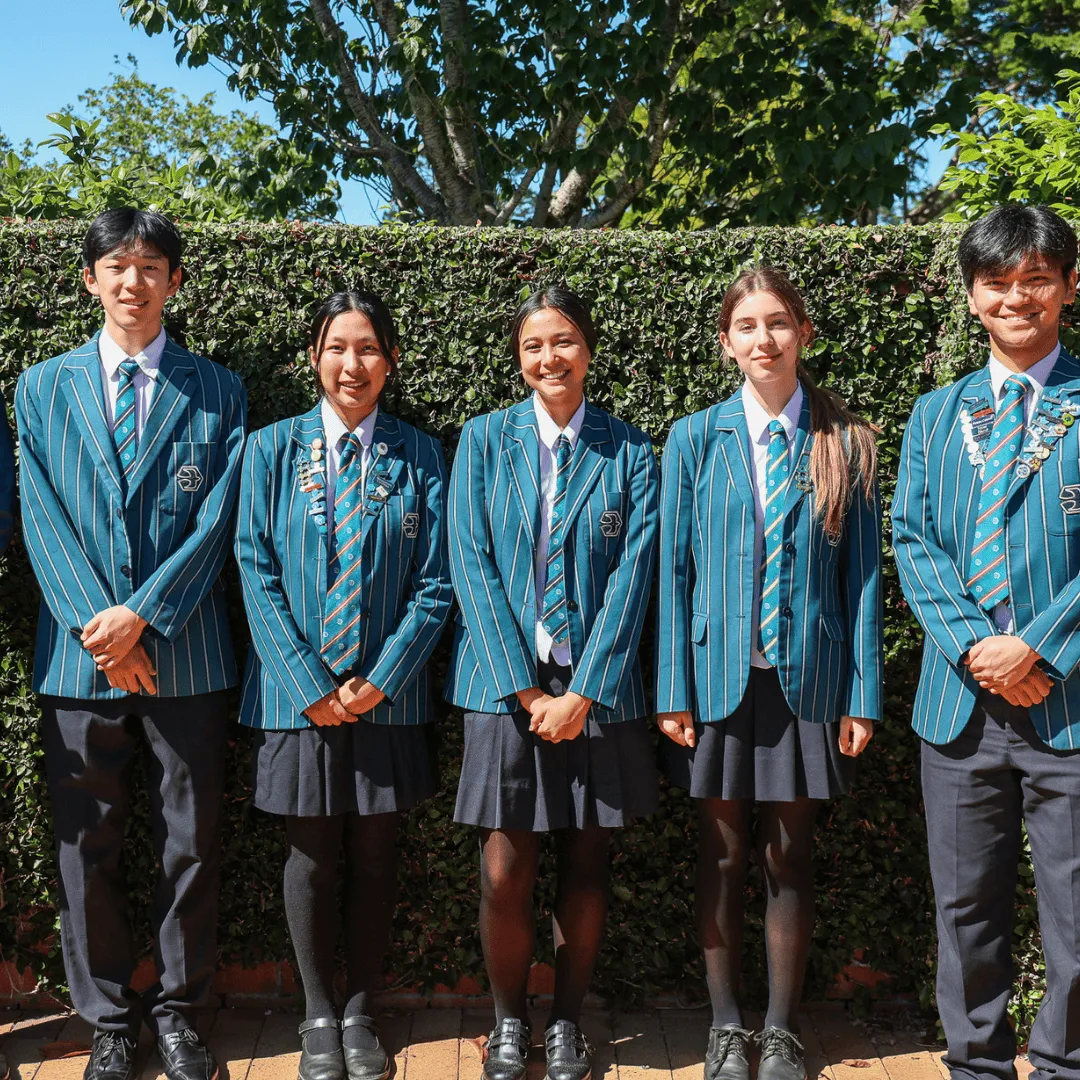News


Alinta's Approach
We caught up with Mitch Graham, National Sales Manager – Australia & New Zealand from Alinta Apparel.


On the PLD Menu
Upskilling, shared learning, camaraderie, conversation and connection were on the menu at these recent ISNZ Professional Learning and Development events.


Meet the Speakers
Find out about our two Keynote Speakers who will be presenting at our Conference on 12 and 13 September in Wellington: Glenn McLachlan and Daisy Christodoulou


Six for Six - Q&A for Private Schools Subsidy Increase
Q&A with David Seymour's Office - Private Schools Subsidy Increase


School Manager Fit and Proper Person Assessment Update
The Ministry of Education has changed the way it assesses school managers as fit and proper persons.
.png)

Join us at the Cambridge Conference New Zealand 2025
We’re pleased to invite school leaders and educators to the Cambridge Conference New Zealand 2025.


Limit the logical and elevate the emotional: Neuroscience in school marketing
For generations we’ve been told that logic dictates our decision making. However, a growing body of research suggests that it's our emotions that drive our decisions, especially when it comes to complex purchase decisions.


How to Increase Engagement from Your Students & Parents
Student and parent engagement is the lifeblood of any successful school community. When students feel connected to their school and parents are actively involved in their children’s education, the benefits ripple far and wide.


Bus out the chaos
Managing 200 students across nine daily bus routes was a nightmare for Pinehurst School in Auckland. RollCall has tamed the chaos with its comprehensive bus management system.


Payroll made powerful: Embracing the complexity of school payroll
Payroll for independent schools in New Zealand is inherently complex, with challenges such as varied leave types, holiday calculations, term time–only staff and multiple pay rates. How can schools conquer these complexities? Here’s a quick look.


Seven Leadership Rules
Ovation Hospitality works with partners across a wide range of sectors, including school canteens, healthcare meals, senior living dining, workplace hospitality cafés and event stadiums.


5 ways leasing enhances your school’s education outcomes
Helping your students learn with modern equipment and reducing the time teachers take troubleshooting ICT are some of the ways Quadrent’s leasing solution can boost your school’s education outcomes.


Trusted Time and Again: Why Independent Schools Choose Tour Time for Educational Travel
When it comes to international school tours, confidence in your travel provider is everything. That’s why so many ISNZ member schools choose Tour Time, because we deliver on what matters most: safety, reliability, and enriching experiences.


Dio Student Shines in Upcoming Taika Waititi Film
Dio Student’s Journey from Drama Class to Film Set


Linda Hall Joins Dio to Strengthen Maths Learning from the Ground Up
We are thrilled to welcome Linda Hall as the new Mathematics Specialist in the Junior School at Diocesan School for Girls.


Kristin wins Auckland French Debate Competition
Kristin School recently participated in the inaugural Auckland French Debate Competition, hosted by the Alliance Francaise of Auckland.
.png)

Automation, Visibility & Control in One Platform
For many finance teams across the education sector, manual processes, paper trails, and siloed systems still dominate the day-to-day, leading to inefficiencies, compliance headaches, and vulnerability to fraud.


Forbes Magazine’s 30 Under 30 List
Springbank School graduate excelling in the law world.


ISNZ Inaugural Teacher Symposium
Register now! The Teacher Symposium gives teachers an opportunity to share and learn from colleagues - presenting the innovations and approaches that they are using in their schools that others may be able to learn from.


Budget Finally Recognises Independent Schools after 15 Years
After more than 15 years of being overlooked, this year’s Budget 2025 marks a milestone for independent schools, with the Government announcing an 11 per cent increase in funding support.


Standing ovations for Les Misérables at Kristin
This very special production was a celebration of Les Misérables celebrated the heart of Kristin, featuring cast members from all three schools (Junior, Middle and Senior), unifying students of all age groups through the magic of Performing Arts.


ISNZ 2025 Conference Early Bird
We are thrilled to invite Heads, Principals, Senior Leaders, Governors and Business Managers from primary and secondary schools in New Zealand and abroad to join us in Te Whanganui-a-Tara Wellington for the ISNZ Annual Conference.


Alinta - The Total Uniform Solution
Alinta is a proudly 100% family-owned uniform manufacturer and retailer, offering hundreds of schools across Australia and New Zealand quality, customised academic and sports uniforms.


Mental Health Literacy as the Bedrock of School Wellbeing
Across New Zealand, schools are investing more time, energy, and resources into student wellbeing than ever before. But despite the best efforts, many schools report mixed results.


How to Host a Successful School Fundraiser
Hosting a school fundraiser is more than just raising money. It’s about creating a sense of community, empowering students, and giving parents the chance to actively support their children’s education.


ISNZ 2025 PLD off to an ‘outstanding start’
Our PLD programme commenced in March 2025 and a whopping 80 member school staff have attended these events.


Meet Benjamin Johnson from Werk Agency
Meet Benjamin Johnson, Creative Director Werk Agency who will be presenting at the upcoming Marketing and Communications Seminar on 28 May at Christ's College, Christchurch.


Credit Card Reconciliation
Join Alii to find out more about it's Credit Card Reconciliation feature.


Warmth, care, and professionalism served with every plate
Ovation fuels busy days and brightens tough ones. Because food isn’t just nourishment – it’s comfort, connection, and the simple joy of sharing a meal with others.


2025 ISNZ Honours Awards
Nominations have opened for the 2025 ISNZ Honours Awards. These will be presented at the Conference Dinner at the ISNZ Annual Conference on Friday 12 September.


The benefits of equipment leasing for your school
Financial flexibility, secure e-waste disposal, and working with your preferred brands and suppliers can enhance learning outcomes for your students.


Payroll made powerful: Embracing the complexity of school payroll
How can independent schools conquer the inherent complexities of payroll? Here's a quick look.


Why Tour Time is the Smart Choice for Your School’s International Tours
When it comes to planning an international tour, selecting the right travel partner can make all the difference. Safety, educational value, financial protection, and expert support are all essential-but not all tour companies are created equal.


Crimson Global Academy Celebrates 5 Years of Innovation and Growth and a pilots 4-day timetable
May 2025 marks a significant milestone for Crimson Global Academy (CGA), New Zealand’s first fully online private high school.


Te Araroa – Walking the Long Pathway
Peter Crompton, Principal - Ficino School, Auckland shares his experience of walking Te Araroa – the Long Pathway.


The perfect measurement of character
How do we measure something that no one is there to witness?


Addressing behavioural incidents
It is important for schools to understand the relevant legal framework and requirements they need to work within with regards to aggressive and/or unacceptable student behaviour.


Unlocking Your School’s Value: A practical framework
There is a lot happening in the modern school marketing landscape. It seems that every time you open a new browser tab there is a new tool or app that is going to “make your life” easier and solve your enrolment problems.


Leading Through Change – Managing Stress and Avoiding Burnout in School Leadership
The role of a school leader is more demanding than ever and the expectation to lead with confidence and resilience, while constantly adapting to new challenges, has placed many school leaders at risk of burnout.


Uniting your community, ‘the ‘write’ way
“The art of communication is the language of leadership,” said writer James Humes. As a speechwriter to five United States Presidents over several decades, Humes had more than a little experience with inspiring a broad, and usually divided, audience.


Celebrating New Zealand’s Outstanding Cambridge Learners
119 students across New Zealand received Outstanding Cambridge Learner Awards at recent University of Auckland ceremony.


How Schools Can Improve Accounts Payable Efficiency Year-Round
Achieving AP efficiency requires ongoing improvements throughout the year. From setting up automation tools to refining approval workflows and strengthening financial oversight, each month presents an opportunity to optimise your processes.


Cranmer Ladies Celebrate 50 Year Milestone
The St Margaret’s College Old Girls’ Association (SMCOGA) was delighted to host our Cranmer Ladies for an annual lunch on Saturday 22 March.


Southwell School appoints new Headmaster
Mrs Keryn Bindon has been appointed to the role of Headmaster, Southwell School, commencing at the end of Term One, 2025.


Marsden welcomes Connah Podmore as 2025 Artist in Residence
Samuel Marsden Collegiate School is delighted to announce Connah Podmore as its Artist in Residence for 2025.


A comprehensive policy process for independent schools
SchoolDocs offers a user-friendly, online policy platform that we customise to reflect each school’s character. Trusted by 2100 + schools,our system simplifies policy management and ensures compliance so that you can focus on what matters most.


A space to connect
Andrew Vicars from Saint Kentigern Boys’ School is a member of the inaugural Teacher Symposium organising committee who will be working with prospective participants to shortlist submissions.


Not all tour companies are created equal
When it comes to working with a travel company and trusting your safety and your money to them, it’s vitally important to know what you need to look out for.


AI and the future of payroll: What lies ahead?
The payroll industry is on the brink of a major transformation driven by advancements in artificial intelligence (AI) and automation. So, what part will AI play in the future of payroll, a field often viewed as routine and technical?


The quiet art of feeding schools well
Warmth, care, and professionalism – plated daily. From the morning rush to the tired hush of boarder supper, Ovation serves New Zealand’s independent schools with meals that nourish, connect, and keep school life ticking.


Assistant / Associate and Deputy Principals networking events
The inaugural Assistant / Associate and Deputy Principals networking events, held around the country, brought regional APs and DPs together to connect, explore similarities and differences in their roles, and share challenges and opportunities.
.webp)

Diana Patchett joins board of Independent Schools of New Zealand
We are pleased to welcome Executive Principal Diana Patchett to the Independent Schools of New Zealand (ISNZ) Board.


ISNZ PLD 2025
ISNZ has landed on a programme that can be broadly categorised into three groups for its 2025 Professional and Learning Development programme: Teaching and Learning, Leadership Development, and Network Sharing.
.webp)

Leadership for Middle Leaders
After receiving excellent feedback about the Leadership for Middle Leaders workshop in 2024 we are excited to be able to bring it back for a new cohort in 2025.


TryBooking: Making School Events Easier
Events are pivotal to building a thriving school community. They build community, encourage participation and support school growth. However, they can become a logistical headache, how can we make them easier?


When To Say What To Whom
Australian school Heads are increasingly forced to address contentious, complex and dynamic issues with their communities, and it seems the communication decisions just get more difficult each year.
.webp)

Mastering Automatic Payment Audits: How Automation Ensures You Are Always Audit-Ready
Audit season can be a stressful time for finance teams, especially when dealing with manual processes, missing documentation, and last-minute reconciliations. But what if you could be audit-ready all year round?


St Peter's Cambridge Welcomes Jason Speedy
The newly appointed Head of School at St Peter's Cambridge, Jason Speedy, treasures his new role.


St George's School Celebrates Newly Formed Campus Layout
The newly formed campus layout has truly transformed the School.


Introducing St Andrew’s College’s New Rector
Mark Wilson began his tenure as Rector (Principal) of St Andrew’s College at the start of 2025, becoming the 11th Rector since the College was founded in 1917.
.webp)

Scots College Welcomes a New Junior School Principal
Scots College is delighted to announce the appointment of Rachel Huggins as the new Principal of the Junior School.


Six Medbury School Staff Receive ISNZ Long Service Awards
Medbury School celebrates an astonishing achievement with 6 of its staff members receiving ISNZ Long Service Awards.


King's College Continues to Partner with Cyclone
The continual training of staff on the effective use of technology in the classroom is the key to executing on a digital strategy within a school. King’s College continues to partner with Cyclone to achieve these outcomes.


The Holidays Act: Five Steps To Get Staff Leave Right
Navigating the Holidays Act can be a challenge for schools juggling the complexities of holiday pay calculations, unique leave arrangements, staff with multiple roles and more.


Circumnavigating Lake Whakatipu
Two high school students are raising money for local reforestation by hiking 250 kilometres around New Zealand's third-largest lake.


ISNZ Long Service Awards at Medbury School
An astonishing six staff members receive ISNZ Long Service Awards at Medbury School.
.webp)

Inspiring Journey to Nepal
During the 2023 summer holidays, Queen Margaret College's 2024 Service Prefect, Avin Khajehzadeh, and Deputy Head Prefect, Divya Srinivasa, journeyed to Nepal for a service trip that deepened their passion for medicine.


5 Reasons a Hosted School Management System Makes Sense for Schools
Your school management software is your school’s engine room, so choosing whether to host it on-premises or in the cloud is a significant decision.


Why Schools Trust Tour Time for Exceptional Educational Travel
When planning a school tour, choosing the right travel provider is more than just logistics—it’s about certainty, security, and creating life-changing experiences for students.


Call for Speakers - 2025 ISNZ Conference
The Call for Speakers has now closed. Thanks to all who submitted a proposal.


ISNZ Launches 2025 PLD Programme
Our PLD programme is designed specifically for independent school staff and we have a range of workshops tailored to meet your needs.


Exceptional academic results for Kristin School students
It has been a very positive start to 2025 for the Kristin community with some exceptional academic results received for its 2024 International Baccalaureate (IB) and NCEA students.
.webp)

Scots College Wellington Welcomes Rachel Huggins
Scots College is delighted to announce the appointment of Rachel Huggins as the new Principal of the Junior School. Rachel will officially take up her position at the beginning of Term 1, bringing a wealth of educational leadership experience and a deep passion for curriculum development.


The Serious Business of Play
Ask children what their favourite subject is, and you’ll often get a cheeky smile and the answer, ‘Lunchtime!’ They grin because they know it’s not really a subject with a book or device in front of them.


23 Months and 52 Schools Later
Guy Pascoe, Chief Executive of ISNZ set himself the mission of visiting every member school in the country. Last week, 23 months and 52 schools later he finally completed his mission.


SchoolDocs updates for independent schools
SchoolDocs is working to better support independent schools with their policies and procedures. Recent changes include a smoother sign-up process and updated policy content.


The Ever Present Phishing Peril In Education
It seems like an almost monthly occurence to read in the media of a school falling victim to a cyber security incident and whilst the causes of these do vary, phishing attacks remain a very popular attack vector. Cyclone shares the significance of how lateral movement increases the impact of a breach, the importance of layers of defence and how to prepare for the inevitable.


Tackling the complexities: Independent schools and the Holidays Act
Datapay explains the complexities of the Holidays Act, payroll challenges and leave management, and highlights the need for schools to have robust payroll systems to record and calculate leave accurately, efficiently, and transparently.


Leading with Grace
Fiona Hutton, from Hutton Consulting Australia sheds light on how to navigate professional setbacks in career progression.


Tour Time Reflects on 2024 Successes
The TourTime team reflects on a successful 2024.


Generous for Julia
The QUEENDOM Stands Together


Chartwells: Shaping School Food Experiences 2024
2024 has been a milestone year for Chartwells. Our commitment to delivering the highest quality food experiences has set a new standard within the residential education sector and established Chartwells as the leader in modern school food services.


Schools that plan smarter, succeed faster
Recognising the need for Accounts Payable (AP) automation is just the first step, true success lies in how you implement it. Alii shares its comprehensive guide, The Business Manager’s Roadmap to Successful AP Automation Implementation in Schools to shed light on this aspect of your business.


Reflections from the UK
Guy Pascoe, ISNZ Chief Executive, recently had the pleasure of presenting at the International Programme for the HMC Conference in Belfast.
.webp)

CGA Celebrates First Sporting Event: A Humble Milestone for Our Community
Crimson Global Academy (CGA) reached a special milestone celebrating its fourth year of operation and the debut of its first-ever CGA sporting team.


Co-education reinforces Huntley School’s commitment to developing well rounded individuals
Huntley School reflects on its transition to co-education.


ISNZCT AGM
The ISNZCT AGM was held via Zoom on 23 October.


Reputational Management - how to effectively manage employee complaints
Complaints about the conduct of staff is a reputational risk for independent schools, and it is crucial to have clear policies and procedures in place that set out how complaints will be dealt with.
%20(1).webp)

Our new website and portal are GO!
In September, ISNZ launched its new website and ISNZ members' portal.


Christ's College Farewell to Garth Wynne
Christ’s College Executive Principal Garth Wynne has taken his final walk around the Quad, flanked by a guard of honour of students and staff, culminating in an emotional Chapel service and a powerful school haka.
%20(2).webp)

Tour Time Tips
Ensuring safety of people and funds so you can travel with confidence.
.webp)

Culinary Envy
How Chartwells is Transforming the Culinary Landscape within the Residential Education Market.


Alinta appointed official retail partner at St Bede's College
Alinta Apparel is proud to announce its retail uniform shop partnership with St Bede's College.
.webp)

Conference Connections
Sponsors spend valuable time with member school decision makers.


Outstanding individuals receive ISNZ Honours Awards


Independent Schools community connects at 2024 ISNZ Conference
ISNZ hosts largest conference to date in Te Pae, Christchurch.


Huanui College Annual inter-whānau Haka Competition
The annual Haka Competition between each of our College whānau groups went off with a bang on the last day of Term 2! Each year, this event showcases an increasing effort from each whānau in their execution and presentation of the school haka.


Rangi Ruru Girls' School welcomes Tracy Herft
Rangi Ruru Girls’ School recently welcomed Tracy Herft as their new principal. Tracy joins Rangi Ruru from Strathcona Girls Grammar in Melbourne, where she was Deputy Principal, and had previously held positions including Acting Principal, Head of Mathematics and Dean of Studies.


Future Problem Solving: St Andrew’s College Third in the World
A group of 11 Year 8–9 students travelled with Preparatory School Future Problem Solving coach, Sonia Lewis, and Preparatory School teacher Kelly McBride, to the International Future Problem Solving Competition held at Indiana University Bloomington, USA. The teams qualified in the New Zealand national finals in October 2023 while in the Preparatory School.


St Margaret’s College Makes History at South Island Secondary Schools Netball Tournament
St Margaret’s College has achieved an extraordinary milestone by winning both the Year 9 and Year 10 divisions at the South Island Secondary Schools Netball Tournament. This historic achievement marks the first time in the tournament’s recorded history that a single school has claimed victory in both competitions.




































